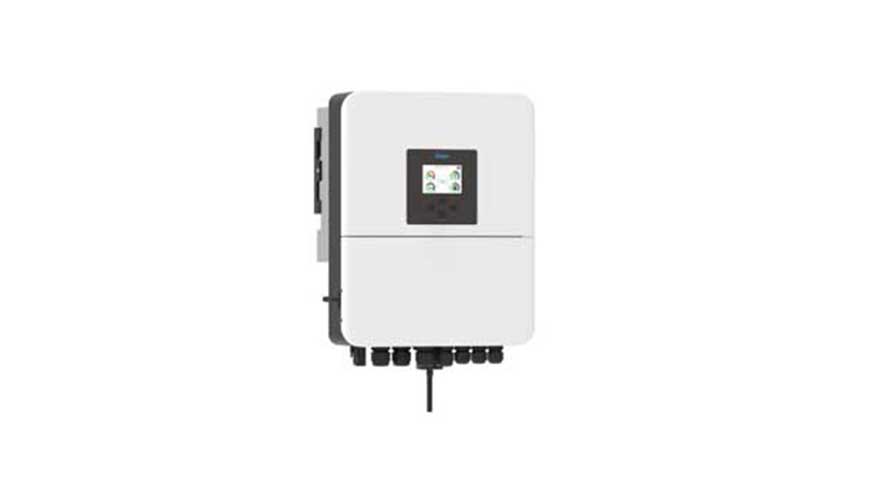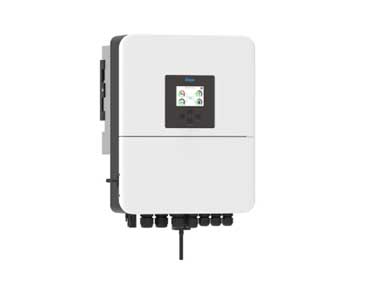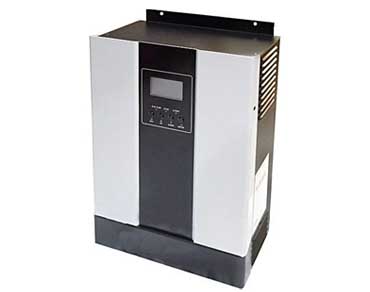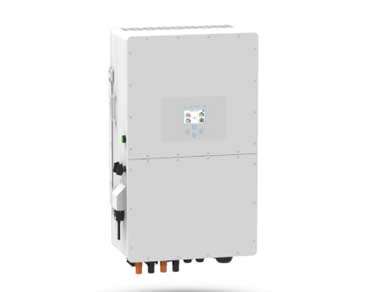Solar Inverters - On-Grid, Off-Grid, and Hybrid Solutions

A solar inverter is a key component of any solar power system. It converts Direct Current (DC) electricity generated by solar panels into Alternating Current (AC), which powers appliances and feeds electricity into the grid or storage batteries. The type of inverter used determines how the system interacts with the grid, batteries, and load.
Types of Solar Inverters :

On-Grid (Grid-Tied) Inverter

Off-Grid Inverter

Hybrid Inverter
On-Grid (Grid-Tied) Inverter

An On-Grid Inverter is directly connected to the utility power grid. It synchronizes with the grid frequency and allows excess solar power to be exported back to the grid (net metering). It's ideal for areas with a stable power supply.
Key Features:
- Grid Synchronization – Matches grid voltage & frequency for seamless power flow
- Net Metering – Export excess power and earn credit or reduce your bill
- No Battery Required – Reduces system cost
- High Efficiency – Smart MPPT technology ensures maximum solar power utilization
- Auto Shutdown During Outages – For safety, the inverter disconnects during grid failures
Ideal For:
- Urban and commercial areas with reliable grid power
- Users seeking lower electricity bills and net metering benefits
Off-Grid Inverter

An Off-Grid Inverter operates independently of the utility grid. It draws power from solar panels and batteries, making it ideal for remote locations or areas with unreliable electricity.
Key Features:
- Battery-Based Operation – Stores solar power for use anytime
- No Grid Dependency – Fully self-sufficient system
- Supports Backup Generators – As an optional power source during low sunlight
- Intelligent Battery Management – Protects batteries from overcharging or deep discharge
Ideal For:
- Rural or remote areas
- Sites with no grid access
- Homes or businesses needing 24/7 power without interruptions
Hybrid Inverter

A Hybrid Inverter combines the features of both on-grid and off-grid systems. It can supply power from solar panels, batteries, and the grid – all managed through intelligent energy flow controls. It offers maximum flexibility and ensures uninterrupted power supply.
Key Features:
- Multiple Power Sources – Manages solar, battery, and grid seamlessly
- Load Prioritization – Uses solar first, then battery, and grid last
- Energy Storage – Stores excess power for backup or night use
- Smart Monitoring & Control – Advanced software to optimize energy flow
- Net Metering Compatibility – Export surplus power to the grid
Ideal For:
- Urban or semi-urban areas with frequent power cuts
- Commercial setups requiring backup and energy savings
- Users seeking both grid interaction and independence
- Brand Partnerships with Top Global Inverter Manufacturers
- Certified Installation & Safety Compliance
- Smart Inverter Integration with Remote Monitoring
- Custom Engineering Based on Energy Needs & Budget
- AMC & Technical Support Across India & GCC
- Experience with Residential, Commercial, and Industrial Projects
